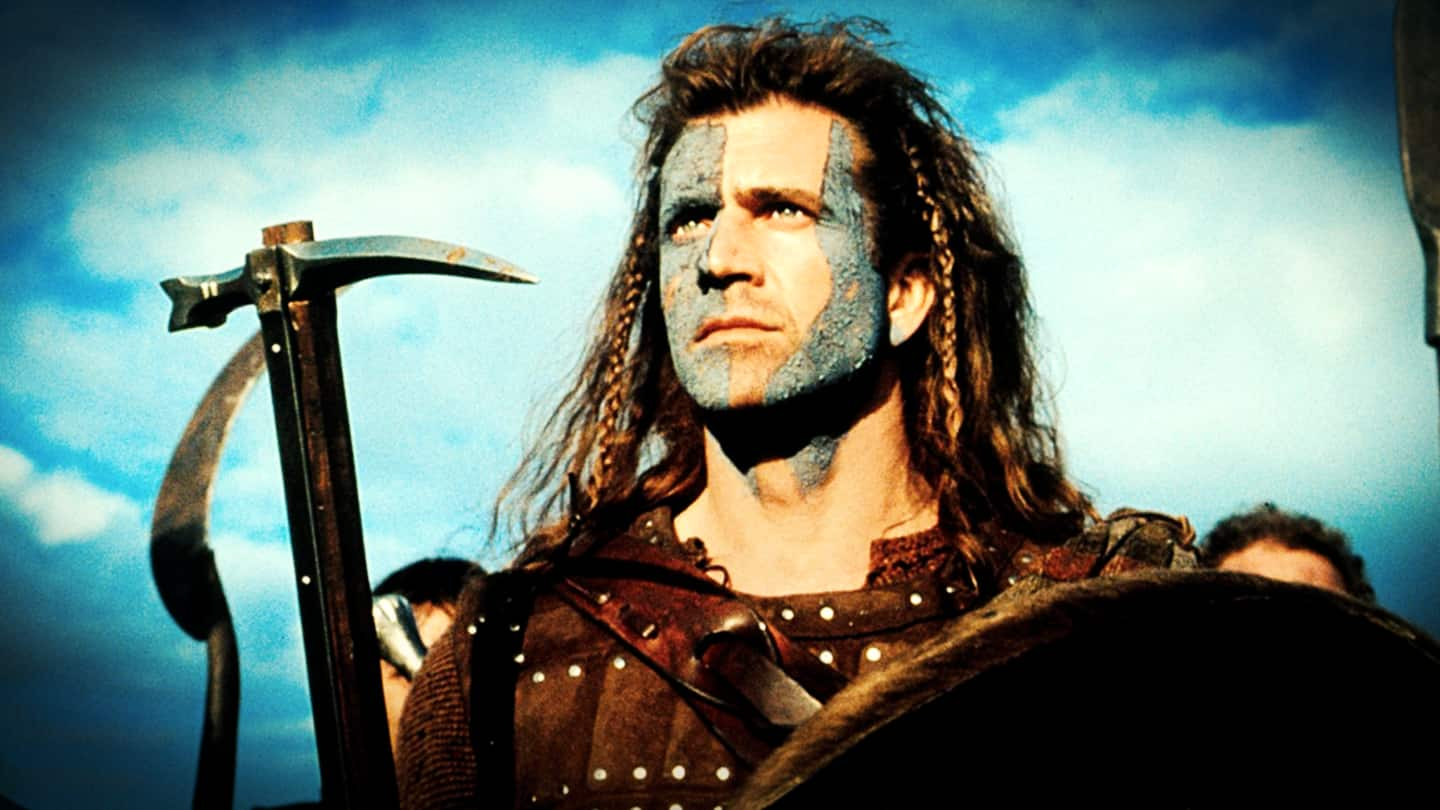
'Braveheart' turns 26: Mel Gibson had rejected this film initially?
What's the story
The epic historical fiction war film Braveheart released 26 years ago today.
Hollywood actor Mel Gibson starred as a Scottish rebel leader named William Wallace.
He was also the director and producer of the Academy Award-winning movie.
Gibson's famous line from Braveheart, "They may take our lives, but they'll never take... our freedom," is still iconic, and inspires us to this day.
Lead role
Did you know Gibson wasn't first choice to play Wallace?
Gibson, who was 40 at the time, initially turned down the lead role, as he felt that he was too old for the part.
He suggested that actor Jason Patric, known for Lost Boys, Sleepers, and Speed Two, should play the iconic character.
Eventually, Paramount Pictures played hardball and wanted him to play Wallace as a stipulation to finance the film.
Trivia
Our original James Bond could have been Edward Longshanks
James Bond actor Sean Connery, who played King Richard Lionheart in the 1991 film Robin Hood: Prince of Thieves, was reportedly approached to play King Edward I in Braveheart.
The actor was busy filming another movie at that time, so he couldn't take up the role.
The part later went to actor Patrick McGoohan, who did a splendid job as King Edward.
Accolades
'Braveheart' won five Academy Awards, Gibson won Best Director
Besides Gibson and McGoohan, the hit film also starred Sophie Marceau, Catherine McCormack, and Angus Macfadyen.
The movie went on to win five Academy Awards - Best Picture, Best Director, Best Cinematography, Best Makeup, and Best Sound Effects Editing.
It also won the Best Director Golden Globe award for Gibson.
The film grossed $210.4 million worldwide (around $365 million, adjusted for inflation in 2021).
Runtime
A four-hour version of 'Braveheart' actually exists
The venture originally had a runtime of three hours and 15 minutes.
Sheryl Lansing, the head of Paramount at that time, requested Gibson and the editor to cut it down to two hours, 48 minutes.
Apparently, Gibson also had a four-hour version of the film.
However, he said he would release it only if Paramount and Fox were interested in reassembling it.
Props
A long story: Of fake horses and real army
Some of the battle scenes in the film turned out far more realistic than intended, with the 1,600 extras.
Most of them were members of the Fórsa Cosanta Áitiúil (FCA), which is the reserve Irish Army.
Many of the horses in the battle scenes were mechanical.
Notably, Gibson had said that he'd give $5 to anyone who could spot fakes in the theatrical release.
History
Meet the real braveheart - Robert the Bruce
In the film, portrayal of Robert the Bruce offended many Scots.
They considered him a national hero, and is said to have never betrayed Wallace in real life.
In fact, he publicly supported him and his war efforts, people said.
It is believed that his heart was literally carried into a battle by Sir James Douglas, giving birth to the nickname Brave Heart.
Tours
Apparently, the film had a great impact on Scottish tourism
Though the film rubbed the Scots in the wrong way, it helped the country's tourism.
Till today, Braveheart tours are available for those visiting the UK. They can visit Wallace's place of birth at Elderslie to his monument in Stirling and Dumbarton Castle.
Ken Thomson from Stirling District Tourism said, "The success of Braveheart was instrumental in making Stirling a must-visit destination."